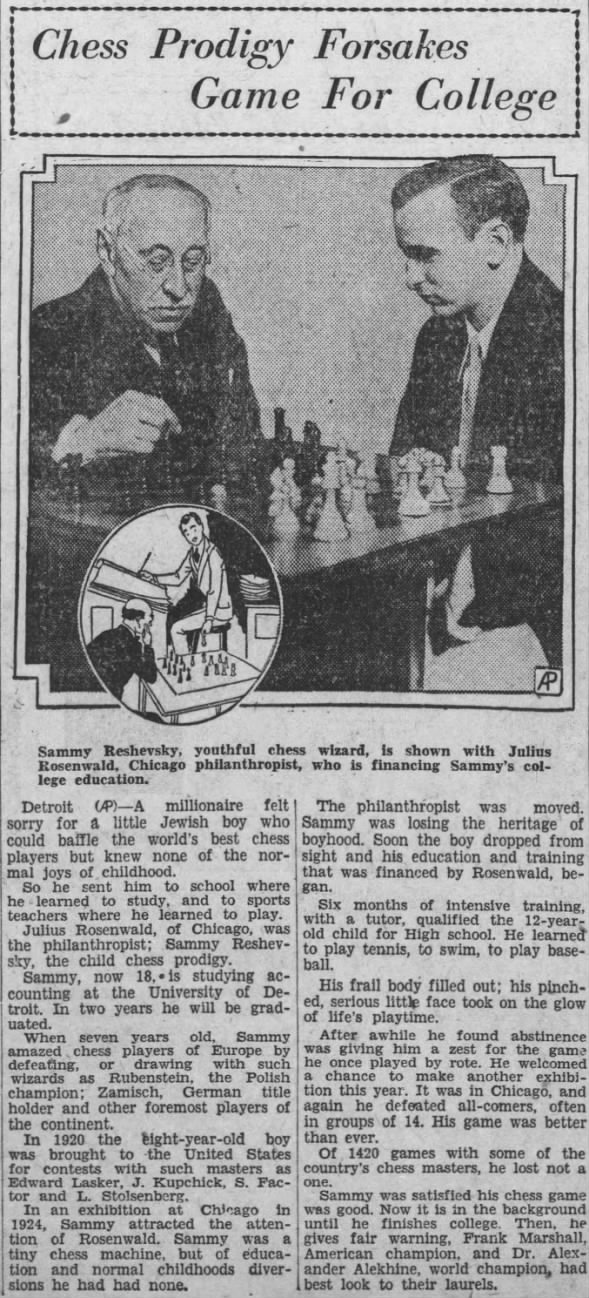September 21 1930
The Morning Call, Allentown, Pennsylvania, Sunday, September 21, 1930
Chess Prodigy Forsakes Game For College
Sammy Reshevsky, youthful chess wizard, is shown with Julius Rosenwald, Chicago philanthropist, who is financing Sammy's college education. (AP)
 Chess Prodigy Forsakes Game For College 21 Sep 1930, Sun The Morning Call (Allentown, Pennsylvania) Newspapers.com
Chess Prodigy Forsakes Game For College 21 Sep 1930, Sun The Morning Call (Allentown, Pennsylvania) Newspapers.com
Detroit (AP) A millionaire felt sorry for a little Jewish boy who could baffle the world's best chess players but knew none of the normal joys of childhood.
So he sent him to school where he learned to study, and to sports teachers where he learned to play.
Julius Rosenwald, of Chicago, was the philanthropist; Sammy Reshevsky, the child chess prodigy. Sammy, now 18, is studying accounting at the University of Detroit. In two years he will be graduated.
When seven years old, Sammy amazed chess players of Europe by defeating, or drawing with such wizards as Rubenstein, the Polish champion; Zamisch, German title holder and other foremost players of the continent.
In 1920 the eight-year-old boy was brought to the United States for contests with such masters as Edward Lasker, J. Kupchick, S. Factor and L. Stolsenberg.
In an exhibition at Chicago in 1924, Sammy attracted the attention of Rosenwald. Sammy was a tiny chess machine, but of education and normal childhoods diversions he had had none.
The philanthropist was moved. Sammy was losing the heritage of boyhood. Soon the boy dropped from sight and his education and training that was financed by Rosenwald, began.
Six months of intensive training, with a tutor, qualified the 12-year-old child for High school. He learned to play tennis, to swim, to play baseball.
His frail body filled out; his pinched, serious little face took on the glow of life's playtime.
After awhile he found abstinence was giving him a zest for the game he once played by rote. He welcomed a chance to make another exhibition this year. It was in Chicago, and again he defeated all-comers, often in groups of 14. His game was better than ever.
Of 1420 games with some of the country's chess masters, he lost not a one.
Sammy was satisfied his chess game was good. Now it is in the background until he finishes college. Then, he gives fair warning, Frank Marshall, American champion, and Dr. Alexander Alekhine, world champion, had best look to their laurels.























